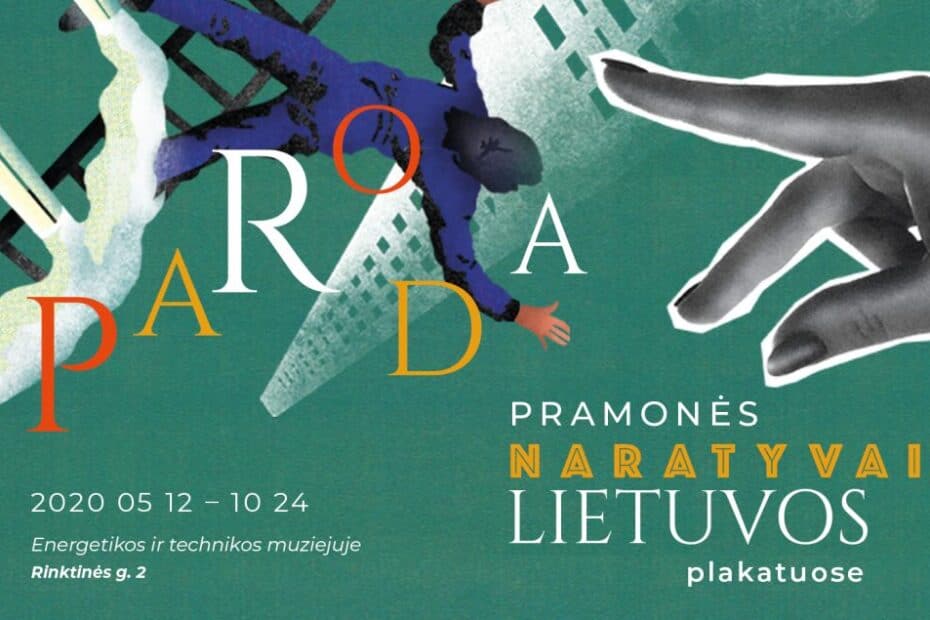A huge part of our environment is related to industry. It is what we use, what we consume, what we wear, what we do, even what we think or what we want. Each new product offers visions of an ideal life and success. Our natural everyday environment promotes the idea of progress and work. It is not accidental that industry comes from the Latin industria, which means diligence and activity.
A poster, as a medium of communication, is ideal for industrial activity. It is publicly visible, quickly produced, widely reproduced. Posters are a vivid testimony to life encouraging us to come to an exhibition or a concert, try a new soap or buy a new book, vote for a smiling politician, work and create the future together. Posters also reveal less obvious forms of everyday life and history: the multicultural nature of Lithuania‘s society, the growth of female labor force participation, multiple changes in country‘s policy etc.
The exhibition presents visual products from three different periods – independent Lithuania, the Second World War and the first decades of the second Soviet occupation – which reveal how both Lithuanian industry and the daily life have developed and changed in 40 years.
The exhibition will be opened from May 12 until October 24.
Find us on Facebook
Exhibition curators: Vladas Burokas and Viktorija Smailyte
Exhibition architects: Greta Vileikyte and Aldona Majakovaite
Exhibition designer: Skaiste Balkyte
Project partners:
Lietuvos nacionalinis muziejus (National Museum of Lithuania)
Lietuvos nacionalinis dailės muziejus, Šiaulių „Aušros“ muziejus
Lietuvos nacionalinė Martyno Mažvydo biblioteka
Lietuvos mokslų akademijos Vrublevskių biblioteka
Vytauto Didžiojo karo muziejus
Nacionalinis M. K. Čiurlionio dailės muziejus
Lietuvos meno pažinimo centras „Tartle“
Lietuvos centrinis valstybės archyvas – Lithuanian central state archives
Lietuvos ypatingasis archyvas (Lithuanian Special Archives) Mažosios Lietuvos istorijos muziejus/MLIM
Project sponsors:
Lietuvos kultūros taryba and Vilniaus miesto savivaldybė
